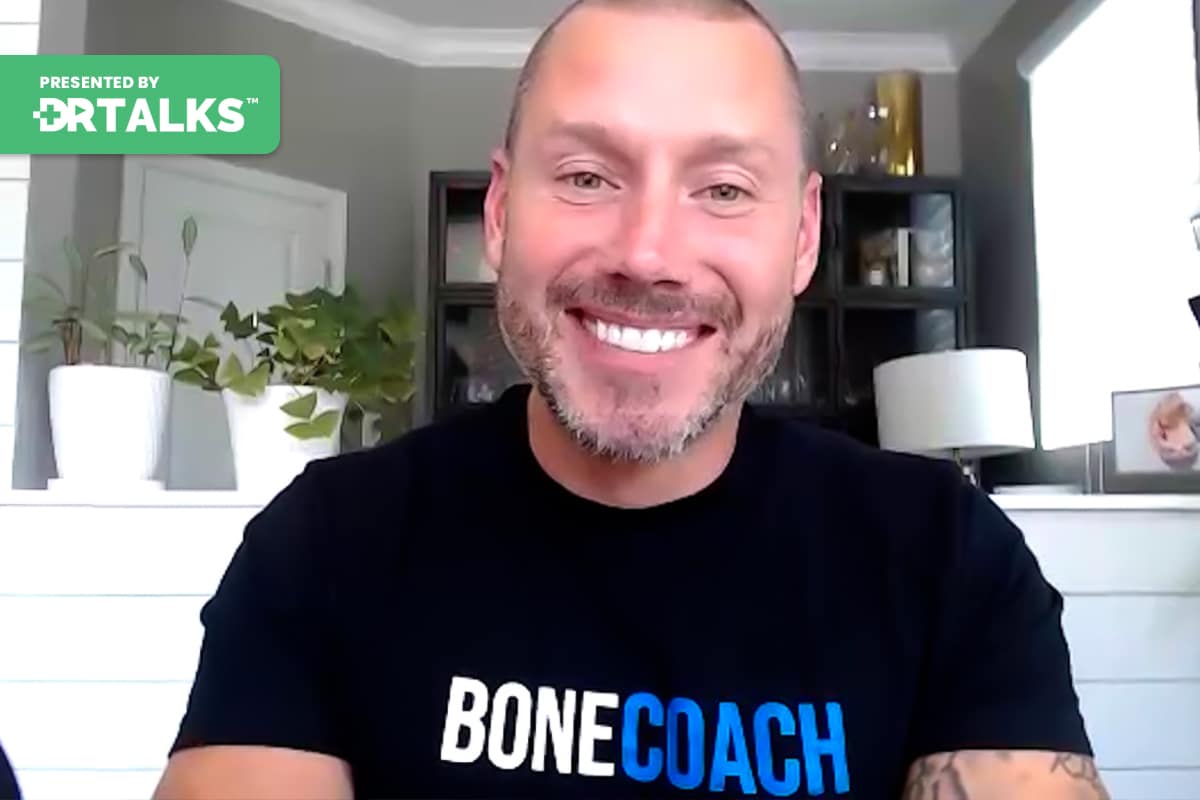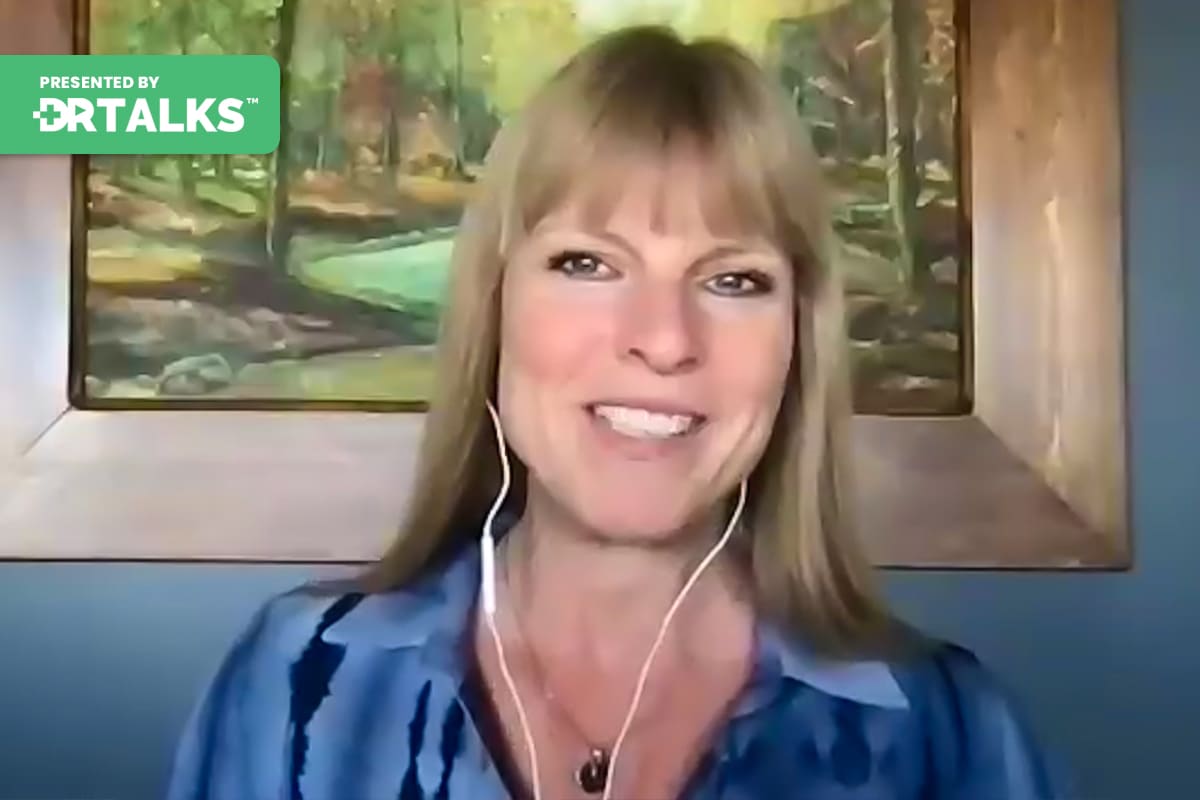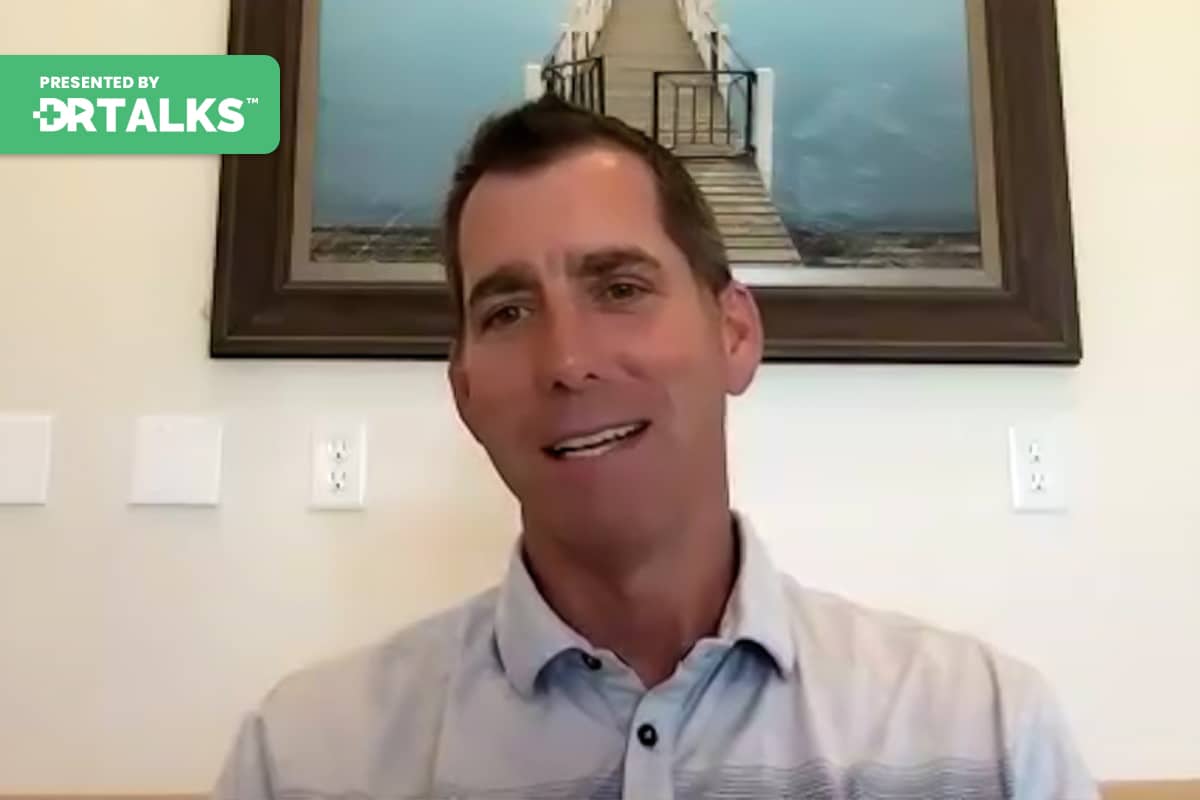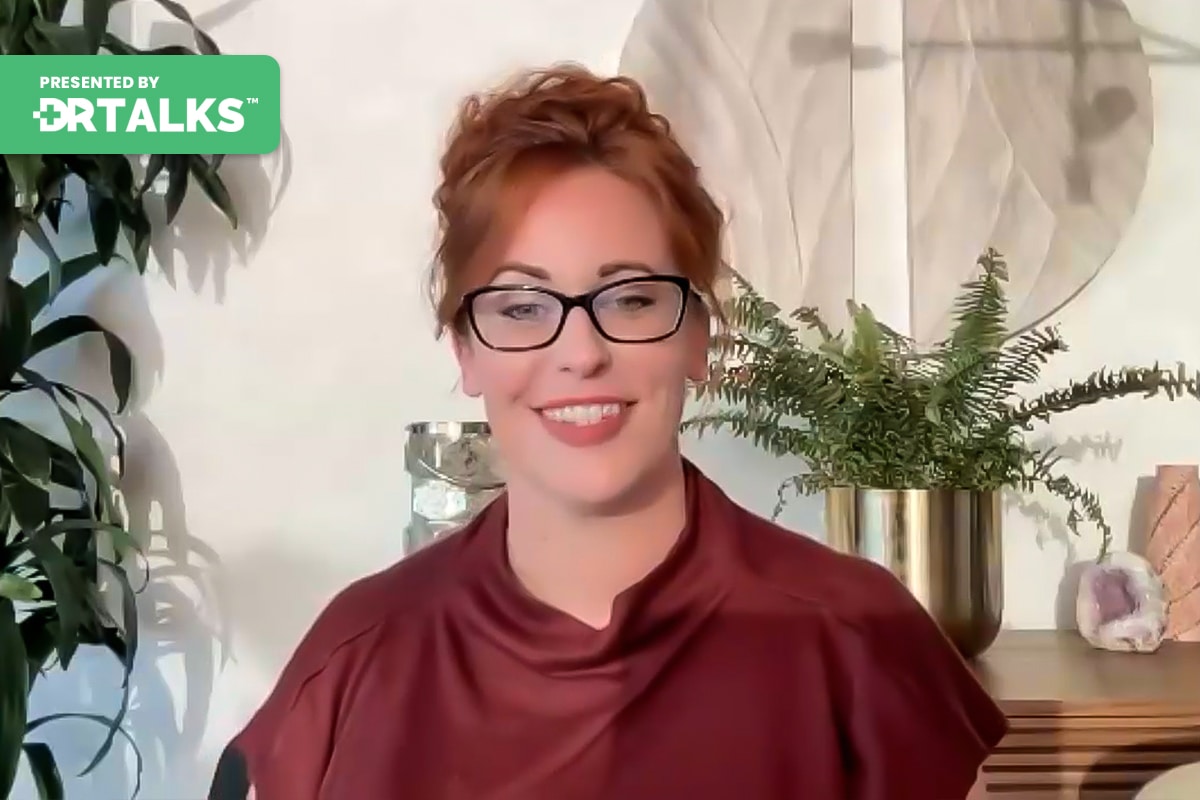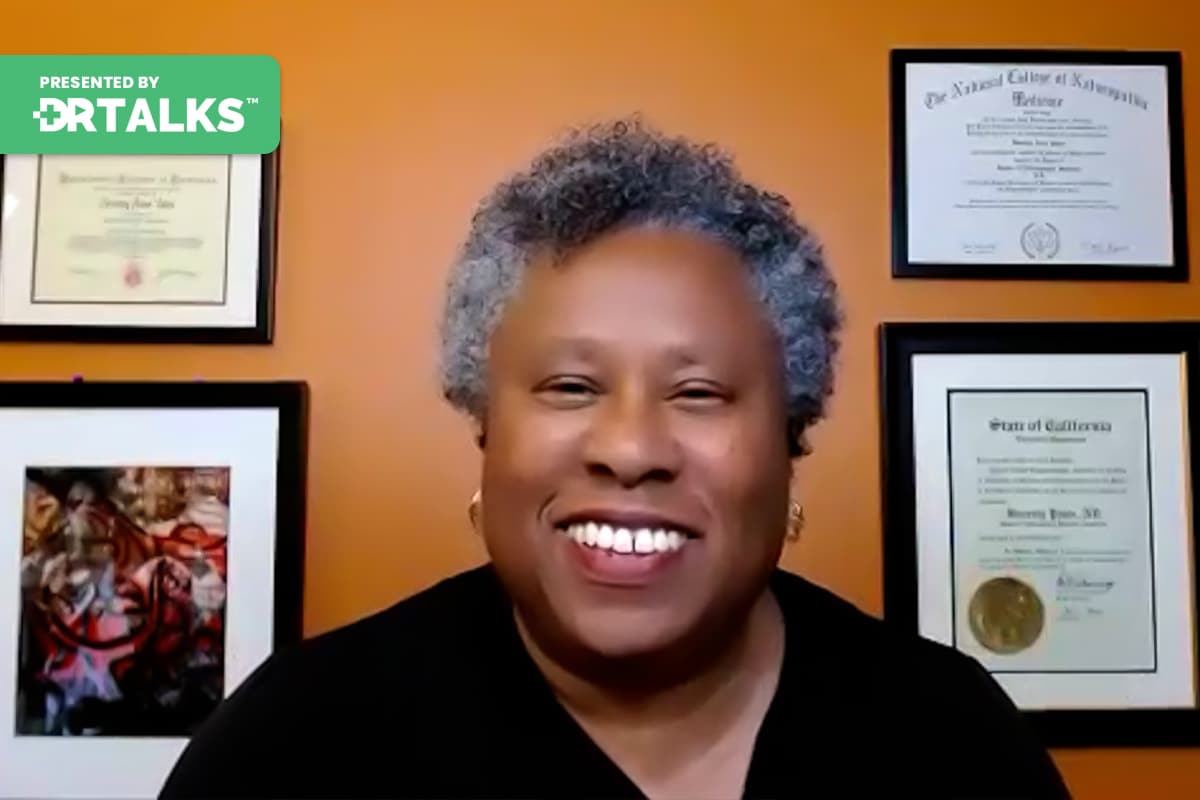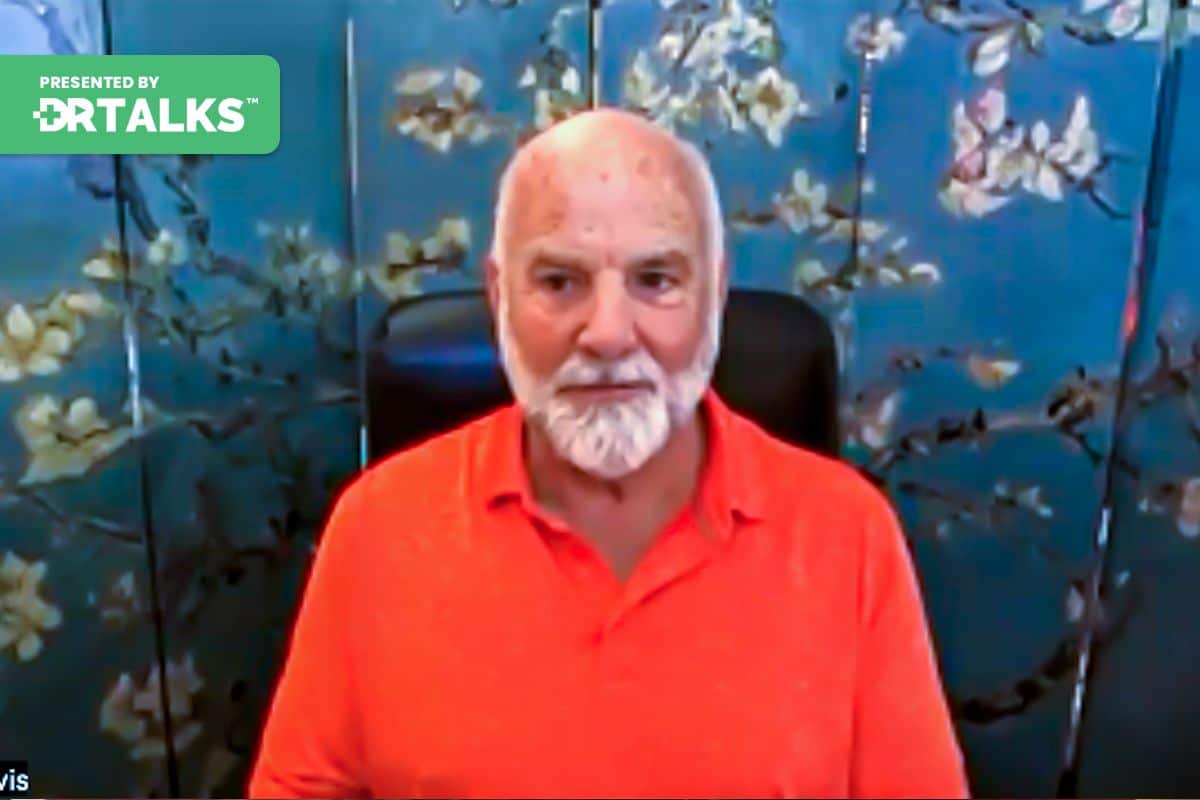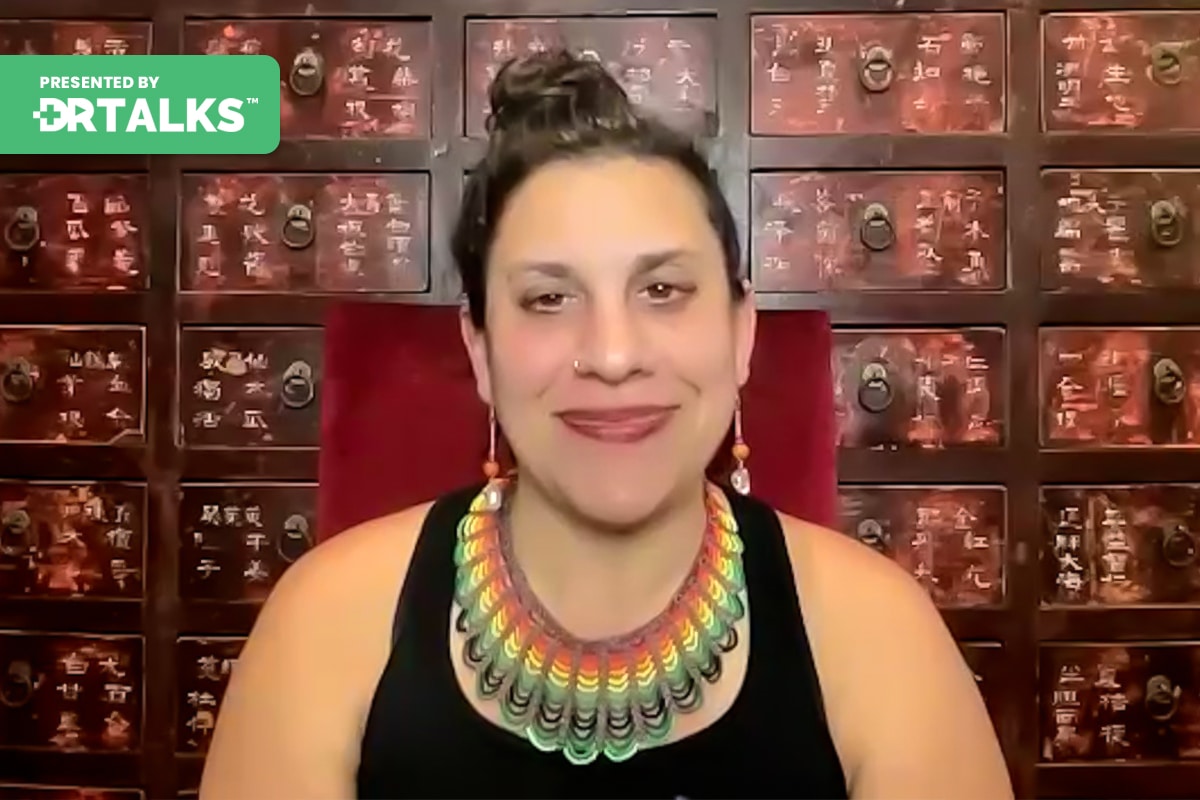Join the discussion below

Sinclair Kennally, CNHP, CNC, is a former chronic illness survivor turned health activist. As an award-winning expert on chronic digestive illnesses, CEO of DetoxRejuveNation.com, and host of Your Health Reset Podcast, she's on a mission to help people discover the real reasons behind their health issues, and take their power... Read More
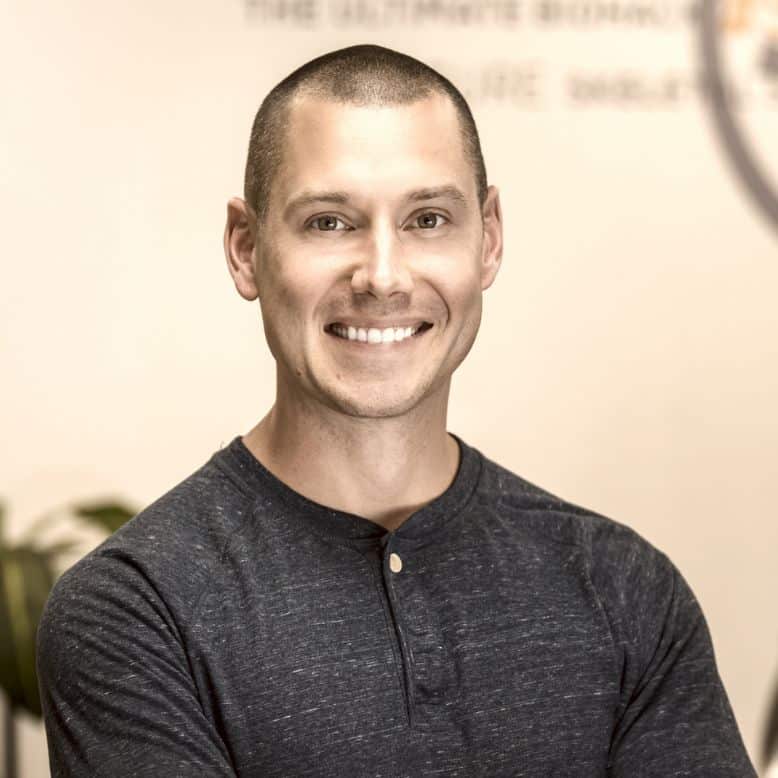
Kevin Ellis, better known as Bone Coach™, is a certified Integrative Nutrition health coach, podcaster, YouTuber, bone health advocate, and the founder of BoneCoach.com. After an osteoporosis diagnosis in his early 30s, he realized just how challenging it can be for the average person to make sense of what needs... Read More
- Recognize the early warning signs of celiac disease and its impact on bone health
- Understand the cascading effects of unchecked gut issues on bone health
- Discover actionable steps to ensure long-term bone health
- This video is part of the Reversing Chronic Gut Conditions Summit
Sinclair Kennally, CNHP, CNC
Welcome back. We’re continuing our conversation on Reversing Chronic Gut Conditions. I am your host, Sinclair Kennally. Today I am joined by my dear friend and colleague Kevin Ellis, better known as the bone coach. He is a Forbes-featured integrative health coach, podcaster, and YouTuber, and he is the founder of BoneCoach.com. Through his unique three-step process and a world-class coaching program called The Stronger Bones Solution. He and his team have helped people with osteopenia and osteoporosis in over 1500 cities around the world get confident in their stronger bones plan. His mission is huge—not just to help over 1 million people around the globe build stronger bones; it’s to help our children and grandchildren prevent osteoporosis and other diseases in the future so they can live long, active lives. Kevin, you have been on such an intense health journey yourself. That is part of why I wanted people to be able to hear your wisdom and your perspective today, because I think it is so relevant to reversing chronic conditions. Welcome.
Kevin Ellis
Thank you so much for having me. I am looking forward to this being a good conversation. I always love seeing you and chatting with you too.
Sinclair Kennally, CNHP, CNC
Let us dive right in because you yourself were diagnosed with osteoporosis early on, right?
Kevin Ellis
Yep.
Sinclair Kennally, CNHP, CNC
Yes. This is not just a hypothetical for you. This is a very deeply felt mission, right?
Kevin Ellis
Absolutely. You would not think, right? You would not look at a young male and say, Wow, this person has osteoporosis. You typically think of osteoporosis. You think of your mother, your grandmother, or the person in old age who has fractures and things like that. You are not thinking of the young man. For me, my health journey, I would say, started a long time ago. Actually, I would say it started when my mother was five months pregnant with me. My father was told he had cancer. Two months after I was born, he passed away; he was 35 at the time. My whole life, I had this fear that I was going to go down that same path of having different health issues and passing away at a young age, and I just always had that concern in the back of my head.
Part of my journey was because he was a marine. I wanted to follow in his footsteps and make him proud. I went into the Marine Corps, and when I came out of the Marine Corps, I had a ton of different health issues. I had high stress, I had more sleep, and I had chronic digestive issues. I will touch on those in a minute. Some days I had low energy. I could barely get out of bed. Finally, I was told that I had celiac disease and that I had been absorbing nutrients for many, many years. Then I was subsequently told that I had osteoporosis and celiac disease, celiac disease being the autoimmune condition where, when you ingest gluten or proteins that mimic gluten, these villi, these tiny little nutrient absorption centers, form in your small intestine. They become damaged and blunted to the point where they cannot do their job.
My roots—I call them roots in our soil— My roots were effectively damaged, and I couldn’t absorb and take in those nutrients, but my body still needed the nutrients to execute its daily functions. Where was it going? It was going to the largest reserve of minerals that I had, which were my bones, and it was pulling from there. Because if you are not taking in these nutrients, and certainly if you are not absorbing these nutrients, but your body still needs them, it will find those nutrients. It will get those nutrients. For me, that came at the expense of my bones. It was not just when you were losing bone; it was just coming in and selectively pulling out those minerals that you needed. It tears down that whole college and protein matrix structure to get those minerals, too. That was a big part of my journey—having that bone loss and being told that I had osteoporosis. Being shocked at the diagnosis to be a young male and to just get a letter in the mail that says, Hey, you have osteoporosis. Go on a gluten-free diet. That was the solution.
I had to actually Google what that meant. I did not even know what osteoporosis was. I knew it was not good, but I Googled it, and the blood kind of drained from my face. I was just shocked. That was when I looked it up; it said fractures and dependence on medication. I was somebody who wanted to be a father and wanted to be there for my kids, and all that was put into question in that moment. The impetus for me to make improvements in my health was very strong. Not only that, I began to do that and did all the research behind it. I decided I wanted to help other people, and that is how I got on this whole path of becoming a coach, building out programs, developing a team around that, and helping people all over the world. Now we have lots and lots of people in our community at this point—over 150,000 people. It’s been an amazing journey. I just want to help more people do the same.
Sinclair Kennally, CNHP, CNC
I think it is amazing. And as somebody who is turning my own personal health struggles into information that I want to share with the world, I deeply resonate with what you are saying. I really want to help people unpack for themselves, if they are listening to this, what they might be thinking about. I appreciate you defining what celiac disease is. As somebody who was surprised to get that diagnosis, perhaps you could share it with others. What are some of those early warning signs? What do you wish you had known before you had been diagnosed to shorten the health journey?
Kevin Ellis
Yes. There were a couple of things about which I was really surprised. That is, number one, if you have celiac disease, not everybody who has celiac disease has these overt digestive symptoms where you have loose stools, you have diarrhea, you have all this. Not everybody has that. In fact, a lot of people do not have that. But you could have neuropathy. You could have pain in different areas of your body that is unexplained. You could have fatigue; where for me, some days I could barely get out of bed. For somebody who went from being this tough Marine who was really active to all of a sudden not even being able to get out of bed, some days it was really, really hard for me and really affected my psyche, too. Then some of the ways that you can tell if you have celiac disease are when you go get testing. You can ask, right? You can ask to get certain tests. When you go in for a regular workup, that is one of the things that you can ask for. You can look at the TTG-IGA tissue transcontamination test. You can look at that; you can look at total serum IGA; you can look at the IgG IgA antibodies; or, a lot of times, they have a complete celiac profile. You just asked for that; get it. That is going to help you get closer to identifying if you have celiac disease. Then, if there is something off in that test, they might want to confirm it with what is called an endoscopy. They will take a sample of your small intestine, and they will see if there is blunting of the villi. That would indicate that there is damage being done. That is how they will make the diagnosis of celiac disease. You have the right to ask when you are in there getting your testing done. If you have a physician that does not want to order those tests, you can go outside of them, go to a functional medicine practitioner, go to a naturopathic doctor, or go to one of those testing places online where you can get the tests and circumvent that rep.
Sinclair Kennally, CNHP, CNC
Yes, I really appreciate you advocating for that. I think so many people waste the first couple of chapters of their illness, their lack of health years, at the mercy of their primary care physician. Who did they start with, and what is that person’s comfort zone? Have they kept up with these testing practices and best practices today? Thanks for advocating for that, because I am a huge proponent of that.
Kevin Ellis
Now I will make one other note, if I could, about just celiac disease. I will give an example from my own family, too. I have celiac disease. I was diagnosed a long time ago. My brother continued to eat gluten. He continued to have a lot of different things. My mother also has a gluten sensitivity, but she was never formally diagnosed with celiac disease. My brother was just diagnosed with celiac disease. All these years, he probably could have been tested earlier on to find this out. But just know that if you have it and other people in your family have health issues too and they have not ruled it out and are still eating that way, encourage them to maybe not just tell him; do not tell them, Hey, you should stop eating gluten. I would encourage them to go get the test first and get the objective data. Then, once the data is in hand, it will probably be easier to get them to help make those lifestyle changes with you.
Sinclair Kennally, CNHP, CNC
Yes, I think it is a great point. There is usually one of us who is sick early and raises our hand in the family unit too. I am going to figure this out. Then we have got to figure out a way to pull everybody along with us. Otherwise, we are just going to watch them suffer. It is hard to do, and I know it is important to respect everybody’s health journey, but the information is there. The answers are accessible. Let us get after it, right?
Kevin Ellis
Absolutely.
Sinclair Kennally, CNHP, CNC
Yes. Okay. Let us continue from here. If those are the early warning signs of celiac disease and the testing methods that are reliable, you do not have to just be at the mercy of your primary care physician. You can go elsewhere if you need to. What are the best treatment options in your mind as a natural health advocate yourself?
Kevin Ellis
Well, if you’ve got celiac disease, you are going to go gluten-free, right? You are going to avoid gluten. You are going to avoid proteins that mimic gluten. It just depends on some people. It is not a choice. It is not that I am going to choose not to eat wheat, bread, or something like that. That day. This day, you have to be gluten-free. If you’ve got celiac disease, you are not going to be able to reintroduce wheat products, gluten, rye, barley, or anything else at some point in the future. Just keep that in mind. But a lot of times, when people hear that, they think, Wow, this just takes away all these great foods that I have come to eat all the time. We are actually not even just dealing with celiac disease. When somebody gets diagnosed with an autoimmune condition or is facing any other health condition, a lot of times we feel like these things are taken away from us. But we could shift the way we view that, as I have the opportunity to explore these new foods that maybe I have never explored before. I think the mental part of this too is such an important piece because if you can frame it as I had the opportunity or I wonder what this meal is going to taste like, you might actually find that if you approach these things with curiosity instead of expectation, your disappointment is going to disappear and you are going to feel a whole lot better as you make these changes in your health journey. Also, if you are shifting more if you are going gluten-free, finding a dietary approach is important, but I am not going to state one specifically that every single person should go on or should be on. But if you are going toward a paleo diet, a ketogenic diet, or something like that, that is still going to offer gluten-free, but it is going to give you a framework to move toward that is going to have recipes, there are going to be organics, and just try it. If that does not work, you can make some adjustments.
Sinclair Kennally, CNHP, CNC
Yes, I think that is great advice. Embracing a new framework is going to expose you to so many more ways to approach this. Okay. As a bone expert, a bone health expert, and as somebody who has struggled with osteoporosis and then reclaimed their own health, I really want to highlight the connection between this rampant explosion of gut issues that we have seen over the last couple of decades. I mean, some of it is reversing chronic gut conditions, right? With leaky gut, with growing awareness of celiac disease, with IBS, and with SIBO, we had real absorptive issues where we became maybe overfed but were still actually malnourished over time. Then one of those downstream effects that we could see is in our bone health. Can you describe that process and what people need to know about it?
Kevin Ellis
Yes. If you think of our bodies and our bones as being plants, in order to grow, you need soil and the right nutrients. Many people focus so much on the nutrients—the salads, the smoothies, the supplements—that they do not consider the soil. When you take in food, you are starting to break that food down mechanically in your mouth into smaller pieces. Then it makes its way into your stomach, where it is churned in this acidic mix to break it down even further. then it’s going to make its way into your small intestine, where it is going to be broken down to its final form. It is going to be absorbed by us. The plants. In order to absorb anything, you need those roots that I talked about in your soil—those villi—and these are your tiny little nutrient absorption centers. They are responsible for absorbing nutrients from the food and the supplements and things that you take in and helping shuttle those nutrients inside your body to where they can be used for building your muscles, your bones, your fingernails, your hair, your healthy skin, and all that kind of stuff. You need healthy villi, but if you have small intestinal bacterial overgrowth, if you have something like celiac disease where you are damaging those villi, if you have Crohn’s disease, ulcerative colitis, or some other conditions like that, or if you have parasitic infections you have bad bugs in your soil, all these things could potentially be stealing nutrients or preventing you from absorbing nutrients. That is one major issue.
I think one of the other big issues in terms of gut health and its connection to bone health is within your bones. Bones are not these static tissues. They are living tissues. They are endocrine organs. Inside your bones, you have what is called bone marrow. Inside that bone marrow, it is producing 95% of the blood cells in your body. It is going to produce red blood cells, white blood cells, and platelets. If you need help preventing bleeding and clotting, that is where platelets are going to come in. If you need help carrying oxygen to the body’s tissues and carrying carbon dioxide away from the tissues back to the lungs, red blood cells are going to help with that. If you need help with fighting infections, healing wounds, or anything related to the immune system, those white blood cells are going to come in. The cells that break down bones are called osteoclasts. They are a form of white blood cell. Anything that is talking to the immune system and stimulating the immune system is speaking in the same language as those cells that break down your bones. Where does 70% of the immune system reside? In your gut. If you have these chronic digestive issues, it’s not just a matter of whether you are absorbing these nutrients; it is also a matter of whether those digestive issues are stimulating the immune system, speaking in the language of the cells that break down your bones, and contributing to and fueling that bone loss. That is a major connection that a lot of people are not aware of.
Sinclair Kennally, CNHP, CNC
Yes. Thank you for highlighting that. I think that is really important to underscore here. And I know that you are a fan of natural health approaches to this, and maybe you could speak to why you personally did not opt for prescriptions to manage your osteoporosis.
Kevin Ellis
Yes, I think a big part of this is a standard recommendation for most people. Take calcium, take vitamin D, go for a walk; here is a bone drug. See you in two years for your next bone density scan. That is woefully inadequate. I liken the use of medications to that old economic adage, There is no such thing as a free lunch, right? There is a cost. There are risks, side effects, and short- and long-term implications for every single thing that we do. These medications have a dramatic effect on bone physiology. It is not taking an aspirin. There are different categories of medications. There are Antiresorptives and there are Anabolics. Antiresorptive would be the bisphosphonates, which would be Fosamax, Boniva, Reclast, Actonel, and all those kinds of bisphosphonates. Then for, Antiresorptives is also a rank inhibitor, Prolia. For those drugs, the safety and efficacy of bisphosphonates, for example, are not really well known beyond five years. As you and I are going about our daily lives and doing our daily activities, we are starting to get these tiny little microcracks, microdamages, and microfractures in our bones. That is normal for everyone.
You exercise, and you do things around the house. You get those little moments when that kind of stress creates microdamage. Then you have cells within the bone that sense that damage. They send out a signal. That signal is, Hey, we have some damage here. We need to become stronger. You have other cells within your bones that sense that signal, and they say, Okay, I am coming. They come in, and they scoop out that damaged bone. These are called osteoclasts. They scooped out that damaged bone. Then, right behind it, as a coupled process, you have osteoblasts that come in and fill in that stronger, healthier bone. When you are taking some of these medications, you can actually slow down the activity level of these cells too much, to the point where you start to accumulate that old, worn, damaged, and weakened bone over time. Even if your bone density results show that they are higher or maybe stable, the bone quality may not actually be that great, and the bone may not actually be stronger. That is a really important note. If we are talking about digestive issues, then a lot of times when people take it, just from how many people I have talked to and just from personal experience and experience with interacting with clients that have had these issues, when they take Fosamax and other things, a lot of times, it can create more digestive issues for them. One of the things I hear all the time from people is that it can actually cause or exacerbate those digestive issues. If you have them, that may not be the right fit. Just in terms of the medications as a whole, I will say that I am not 100% and you should never use one. I am pro-doing everything you possibly can naturally first before ever considering that as an option. I do think in some situations there may be a time and a place if somebody is already fracturing and it is in, they are not having a lot of trauma with those fractures, and they’ve got really poor quality bone. That may be a different discussion. But for the great majority of people, the medication is probably not going to be the right fit from the start.
Sinclair Kennally, CNHP, CNC
Yes. I really appreciate you laying that out for folks. We have quickly normalized osteoporosis pretty much at the same rate that we have normalized other kinds of guy issues. When you see 61% of the American population claiming they have chronic digestive issues and ongoing symptoms, this is a serious problem in this generation and is cropping up very quickly. When we are not ordering nutrients, we certainly do not set the stage for long-term bone health. What is within our power when you have had long-term gut issues and you are dealing with bone health issues, whether it is osteopenia or you have already developed osteoporosis?
Kevin Ellis
Well, let us touch on maybe some of the bigger things that are actionable that people can touch on, address, and actually take away from this conversation and implement in their lives. Nutrition—that is a big one, right? You are doing that every day anyway. How about we do it in a way that supports your gut health and your bone health? I think what is important to keep in mind is that with any dietary approach that you are following or any path that you go down, understand that we are all biochemically and genetically unique individuals. You are going to respond to different foods, supplements, and dietary approaches differently. As much of a superfood as something may be right, or as much as this one thing that you have heard could be the solution to everything. Approach it with curiosity. It may not work for you because if it creates inflammation in your body, it is not a healthy food for you. That is okay. Just keep it in mind. The other thing I would say is that if you are somebody who has chronic digestive issues, issues with Candida, small intestinal bacterial overgrowth, or an autoimmune condition, your dietary approach is going to look differently than that of those who do not have those things. If we are talking about supporting your gut health and your bone health, what are some good, healthy food additions that you could incorporate into your plan?
A couple ones that I really like. I like sardines, mackerel, and wild sockeye salmon. I do like those. When they have the bones in, these are not the hard, pokey bones that will hurt your mouth, by the way. If you get them in the can, make sure it is a BPA-free can. These bones have all the minerals that your own bones need in the right ratios that nature put them in. I think there is also a source of calcium in those bones, and a lot of times, when people have gut health issues or chronic digestive issues, they may be eliminating something like dairy, too. If that was even in their plan in the first place. If that is the case, then they are looking for other sources of calcium. This could be one of those sources, and it also works with an autoimmune protocol. I think that is an important thing. They have protein for the sardines, mackerel, and salmon. The proteins in those, too. You need protein for your muscles, and you need it for your bones. then it’s got omega-3s. Omega-3 fatty acids are fatty acids that you have to have. They are great for you, and they are dampeners of inflammation.
Anything that contributes to that inflammation is not going to be good for your health, especially in the long term. That’s three positives right there. I would incorporate those, or consider them arugula. I love it; it is one of my favorites. It’s a bone-leafy green in the same cruciferous family of vegetables as broccoli and kale. You’ve got vitamin C, vitamin K, and bioavailable calcium. It is a great alternative for somebody who, if they’ve got chronic digestive issues, may have a hard time breaking down and degrading oxalate, too, or if you’ve got issues with Candida, you could have oxalate issues, mold issues, or something like that. You could have oxalate issues there, too. Arugula is a low-oxalate green. This could be a fantastic addition to your diet, and it is a bitter food, too. I know Sinclair knows so much about this and loves the gallbladder and the liver, which are so important to our digestive health.
When you have those bitter foods, that is going to help with the bile production in your liver. Great addition, and you can easily sauté it. It could be a great, easy addition. You do not need to add a lot to it for it to taste good. Little olive oil, a little salt. That could be sea salt. That could be great. Or you could just have it in a little side salad. That is an easy one. Vitamin C and rich foods are really important. I think we all know vitamin C is important for our health, but the reasons it is important for your bone health, too, are that your bones are this collagen protein matrix structure with those minerals kind of laced in there, right? Vitamin C stimulates pro-collagen. It enhances collagen synthesis and stimulates alkaline phosphatase activity, which is a marker for bone-building cell formation. It is great for the bone protection side and the bone building side, and if you are not getting enough vitamin C, that can increase the risk of fractures as well.
Getting those foods: peppers are probably one of the best vitamin C-rich sources from a vegetable perspective. If you have an autoimmune condition, maybe keep the peppers out and focus on some of those cruciferous vegetables. Focus on the arugula, the steamed broccoli, and the steamed Brussels sprouts. You can incorporate those fruits and berries. Berries are a great addition. You can get it if you are looking at just what is available in the store. Blueberries, raspberries, and strawberries—those kinds of things can be great additions. If you are one of those people who shops online, you will go a little bit further to find some really good berries. If you get wild blueberries with higher antioxidant levels, if you get huckleberries with higher antioxidant levels, you get Lincoln berries with higher antioxidant levels. These are great additional fruits that have really high ORAC scores and antioxidant levels, and they can be great additions to your plan. I would say those are a couple. I love cucumbers, I love blueberries, and I love those kinds of foods, too, as additions. That would be nutrition. I will actually pause there for a second.
Sinclair Kennally, CNHP, CNC
I think this is great. We need to remember that we have so much available to us in the foods that we choose and that this is not about just the green pharmacy and about really expensive therapies and huge pieces of equipment that you have to invest in or go to a clinic to get to every day; you have a lot available to you right here. I really appreciate you making the distinctions about different food filters that people may need to be aware of. You may have an oxalate-sensitive, autoimmune disease. You need to stay away from nightshades and lectins. Not everyone’s going to gravitate towards the same healing foods, but there are still plenty to choose from. There are so many.
Kevin Ellis
Yes, so many. I would say the other piece too; that is one lever, right? We all know nutrition is one lever we can pull. That is an actionable thing we do. Exercise is another big one. Even if you have chronic digestive issues, you can still exercise, right? You may not have the energy levels that you had a while back, and that is okay. You can tailor your exercise routine while you are still getting your energy levels back. Listen to your body. That is important. But let us talk about the exercise that you need to support your muscles and your bones. But you need two different types of stimuli for your bones. You need muscle pulling on bones, and you need impact. The most effective intervention is to use one or both of those things in combination. The different types of exercise that most people are recommended to do are weight-bearing exercise, muscle-strengthening exercises, and resistance training exercises.
Let us break down each of those. What does that really even mean? Weight-bearing exercise would be where your body and your bones have to work against gravity to keep you up right. There are things that you are doing on your feet that are placing a good kind of healthy stress on your bones. That is good. That is what most physicians are going to recommend to someone. But that is not enough, right? Walking by itself is also recommended. That is not enough to build bones, while I repeat that again: Walking is not enough to build bones. You also have to keep that in mind when you are walking; remember when I said you need muscle pulling on your bones? You need impact. When you are walking, you are getting a little bit of impact, right in the same direction, but you are getting a little bit of impact but not really getting much else. You are also not working the upper part of your body. There is no stimulus for your forearms, which are a big area that people fracture when they get older. You have to incorporate other types of exercise. Weight-bearing exercise is important. There, the different types of weight bearing would be walking, jogging, running, hiking, gardening, and dancing; those kinds of things are all weight bearing, and then yoga, pilates, tai chi, and qigong; those kinds of things are also all weight bearing. Notice what weight bearing? Not all of it was a formal workout. Some of it can be gardening or playing with the kids, the grandkids, or whoever outside. That stuff can still be weight-bearing exercise.
There is also non-weight-bearing exercise. This is where your body and your bones do not work against gravity to keep you upright. There are things you are not doing on your feet, and they are not placing good, healthy stress on the bones. That would be cycling. That would be swimming. Swimming is another really big one. Now, this is the same thing that astronauts face in space: in an environment where they are not their bodies and their bones are not working against gravity, they will lose bone density very quickly if they are not using it. The same thing applies here. If you like to swim, that does not mean you should stop swimming. You can keep swimming, especially if it makes you happy. It brings you joy. Maybe it is an activity you do with your family or friends. That is great. I think that is really important. But do not get out of the pool five days a week and say, I am done. I did my exercise. There is more we have to do. That is more than the muscle-strengthening and resistance-training exercises. That is what you are bringing in. Maybe it’s your body weight; maybe it’s dumbbells. Barbells, resistance bands—maybe it’s the machines at the gym. If that is where your comfort level is or where you feel you need to be starting, that is great too.
Incorporating different lifts and movements to help support good muscle growth and good bone growth. What would those movements be? Squats. Those are great ones, right? They are moving a lot of different muscle groups at once. These are major lifts—deadlifts. That one sounds intimidating to some people. If you have never done that, some people are very comfortable with it. That is great. If you are doing them and know how to do them with good form, keep doing them. Those deadlifts are a great addition. If you do not work with somebody who can help you figure out your body mechanics and slowly progress up to where you can do that safely with a weight that is good enough for you, that is an important one to incorporate into overhead presses. If you have not already had a fracture, it can also be a great addition. If you have already had a fracture, you do not want that axial loading compressing down on those vertebrae. The other one would be maybe chin-ups or doing some kind of box jump or jump landing. Those can also provide a little bit of impact. Those are some ways that we can start incorporating good, healthy exercise into our routines. Again, listen to your body and just make sure you have good form. It does not mean you have to go full force, all in, on day one. That has never been the right approach for any kind of health situation.
Sinclair Kennally, CNHP, CNC
Slowly and tried it many times. Do not do it.
Kevin Ellis
Don’t do it, people. Leave the injury. It will set you back. Be patient with yourself. Even the type A’s. Trust me. Even the type A’s that are just giving me the plan, I want to go, go, go right now. I will do it all day one. Don’t! Slowly progress into it. That is going to be the best approach for you.
Sinclair Kennally, CNHP, CNC
Okay, great. Well, that is a great insight. Any other areas of focus that really tie gut health and bone health together that you think we should cover today? We have not touched about bile flow. That is a favorite of mine.
Kevin Ellis
You know what? Let us talk about that because Sinclair has been, I mean, here is the thing with health, too: it is a constant evolving process for everyone, for all of us. When you improve one health condition or optimize in one area, you may try to optimize or focus on another area. I do that. Sinclair does it. We all do that. Everybody does that. I really enjoy this part of the journey. One of the things that I knew I still needed a little bit of help with was that every time I ate a fatty meal, I had this referred pain in my right shoulder blade. I just suspected that, and I knew I had something going on with the gallbladder. I did not know exactly what it was. I also did not know 100% how to address it confidently by myself. Fortunately, I know Sinclair. I reached out to Sinclair, and she just put me through what the specifics were. Was that the rapid liver reset, or what was this?
Sinclair Kennally, CNHP, CNC
Yes. You did a deep flush in Rapid Liver Reset, our course on liver health.
Kevin Ellis
Yes. Yes. It was super, super helpful. I walked through it step by step. I was your grade A student just going.
Sinclair Kennally, CNHP, CNC
You literally were. Yes.
Kevin Ellis
Step by step. What is interesting is that I have never done a gallbladder flush before. I was able to flush hundreds and hundreds of stones. Some of them were tiny, tiny, little, tiny little pebbles, and I had a couple that were the size of marbles. Are very close to that. It felt amazing, and now I no longer have that referred pain in my shoulder blade.
Sinclair Kennally, CNHP, CNC
That is.
Kevin Ellis
Great. It is so good. You find these things right, and I was just telling you before this that in the past I had some trauma on the side of my face and some teeth that were cracked. I knew they had gotten infected. I ended up having root canals before I knew root canals were not a good thing to have in your mouth. One of the next things I am now focused on is going and having those root canals removed and focusing on that. As you look at what is now, just look for the next thing that you can focus on improving and just keep moving forward.
Sinclair Kennally, CNHP, CNC
Yes. It will be so beautiful because, I mean, if you have gallbladder issues and your bile is not flowing with ease, you cannot absorb your calcium efficiently. You cannot absorb those fat-soluble vitamins. You’ve got to have strong bones.
Kevin Ellis
Have to.
Sinclair Kennally, CNHP, CNC
Dental health. If you do not have your dental health optimized guys, you could be dripping down silent infections that are absolutely affecting your gut microbiome. No. two ways about it. We’ve got other interviews in the summer to support you on that. I get excited about being curious because I know it can be a daunting journey, but it is one layer at a time.
Kevin Ellis
One thing I want to touch on, because you just said you talk about the importance of bile flowing and helping break down and emulsify those fats to help you absorb fat-soluble nutrients, Fat-soluble nutrients are so important for your bone health. Vitamin D is one of them. Vitamin D is obviously important for so many things. It is critical for your bone health. You need to be able to not only have good transport, but you also need to have good binding. If you are taking it in through your diet or your supplements, you want to actually be able to absorb those nutrients, especially vitamin K, which is also really important. For vitamin K2 specifically, that is going to help activate something called osteocalcin and matrix GLA protein to help you build bones. But also to help make sure that calcium is not going into your soft tissues, your kidneys, your arteries, and all the other places that you do not want it to be. It goes directly to the bone, where it needs to be. You want to make sure you’ve got good digestive function. You’ve got good bile flow, and your liver and your gallbladder work in the way that they need to.
Sinclair Kennally, CNHP, CNC
True. Great point to underscore. Thank you. As we wrap today, you have given people so many actionable insights that we have helped really tie together: the gut health issues and long-term bone health; what you can do; what is in your control right now from a national health perspective; any last words of wisdom for folks that have been on the healing journey for quite a while and they are just looking for a little bit of inspiration or encouragement.
Kevin Ellis
Be patient with yourself. I know it can be really easy to look back and place blame. I wish I would have done things differently. I wish I would have known this then. Guess what? Every day is day one. You get to start brand new today. Today, as you are listening to this, if you heard something and you are thinking, I need to make changes here, or I am going to commit to making a change or an improvement, you have the power to do that. Everything from here forward is going to be positive, so keep moving in that direction.
Sinclair Kennally, CNHP, CNC
Beautifully said. Thanks so much, Kevin, for sharing your wisdom today. We really appreciate you.
Kevin Ellis
Thanks for having me.
Sinclair Kennally, CNHP, CNC
Where can people find you?
Kevin Ellis
You can always find me at bonecoach.com. We’ve got bone-healthy recipes. We’ve got everything to help people build stronger, healthier bones. If that is important to you or somebody you know, send them to bonecoach.com. We’ve got awesome resources there. Then you can find me on all the social channels: Instagram @BoneCoachKevin, YouTube @BoneCoach, and Facebook at Bone Coach. Then we have a podcast, the Bone Coach podcast, on which Sinclair has been a guest on. Those are great resources, but bonecoach.com is probably the best place.
Downloads

